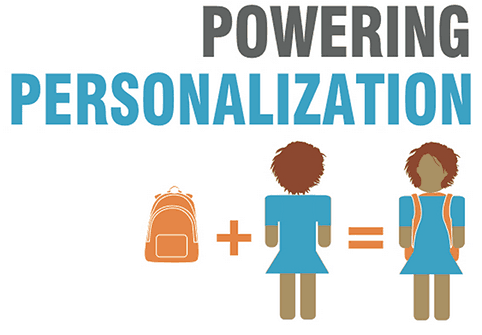Parent Access to Secure, Quality Student Data is not an Option, It’s an Imperative

Aimee Rogstad Guidera
What Do Parents Want?
Parents are eager for information about their child’s education. As a mom, I want to know if my daughter is struggling in math before she comes home in tears. I need information to support my child’s learning at home, and to support my child and her teacher in making the best decisions for her learning in the classroom. I promise you, I am not the only parent grasping for more, better information about how my kid is doing in school. Parent focus groups conducted by the Data Quality Campaign (DQC) point to just that. One parent in Kansas City told us, “Anything that they can tell me that helps empower me to help my child learn more at home, then the better.”
Parents want all the information possible to help support their kids, in school and beyond. Still, most states aren’t giving parents the information they want—and deserve—to make smart decisions about their child’s education. Currently, only 17 states provide parents with access to longitudinal data about their child. To really get the whole picture of their student’s successes and challenges, parents need access to a variety of indicators that look at their child’s performance over time. While parents are starving to know more about their kid’s learning, they are often given only crumbs of information – disparate data points that are hard to weave together into a coherent picture and don’t tell the full story of their child’s education. The current move by some parents to opt their children out of tests is consistent with what we already know: it is nearly impossible to convince parents of the value of data in education if you still can’t answer their most basic questions.
Role of Student Data Backpacks
State and federal policymakers need to ensure that parents have access to high-quality, longitudinal data about their students. In response to parent demand, states including Georgia and Utah have pursued different strategies that each build new tools to give parents access to their children’s data. In Utah, the state legislature led the way and requires that by 2017 all students have an electronic student data backpack that accompanies them to any school within the state and will allow parents to track their students’ progress both in the classroom and through other external learning opportunities. Georgia’s Department of Education created the Parent Portal which allows parents to access state longitudinal data about their child through the district’s student information system. These two different approaches demonstrate that states are willing to innovate to meet the needs of parents and families. Regardless of the means states take on to ensure that data are available to parents, the most useful tools to parents include information that is:
- Accessible and timely – Is the information there when you need it? Is it easy to find and in a format you understand? Does the data help you understand how your child is doing in school currently?
- Portable – Does the data follow the student if they move to another district? What about after-school care or summer programs?
- Secure – Are there safeguards and privacy policies in place to protect my student’s information? Is access limited only to those who need it?
- Understandable – Does it offer an analysis of the data to point me towards a next-step? Is the information packaged in a way that offers a clear picture of my child’s learning?
We Can Do This
One of my favorite things about student data backpacks is that they are entirely within our reach. States have already built the data systems needed to give parents access to the longitudinal, student-level information that will transform how they understand and make decisions about their child’s education. With so much data infrastructure already in place, it is imperative that states take the next step to provide parents with access to data about their students that is accessible, timely, portable, and secure.
In my daughters’ school in Minnesota, I’m already seeing how the district’s focus on using data has changed my kids’ parent-teacher conferences. Now, my husband and I are informed collaborators with my daughters and their teachers to understand her progress, areas for improvement, and what each of us can do to help her meet her goals. But data use should not be limited only to parents in my district, or even in my state. I believe that all parents deserve to have real, information-driven conversations with teachers. I am confident that, with enough political will and a little elbow grease, states can provide parents with the data they need to ensure their student’s success through graduation and into the future.
This post is a part of a Student Data Backpack blog series in the upcoming “Getting Smart on Personalization and Privacy” Smart Bundle produced in partnership with the Foundation for Excellence in Education’s Digital Learning Now initiative (@DigLearningNow) and the Data Quality Campaign (@EdDataCampaign). Join the conversation on Twitter using #EdData.
For more, check out:
- The Opportunity for States to Provide Secure Access to Parents and Educators
- Parent-Managed Learner Profiles Will Power Personalization
- Personalization + Privacy = Data Backpack

Aimee Rogstad Guidera is the President and CEO of the Data Quality Campaign, and a mom of two daughters in public schools in Minnesota.







Barb
This frightens me. There is no guarantee my child "backpack" info is protected. We are all ready sending too much info about our children to 3rd parties unwillingly and without consent. All of this can still be done in a good old traditional parent teacher conference with paper and conversation.